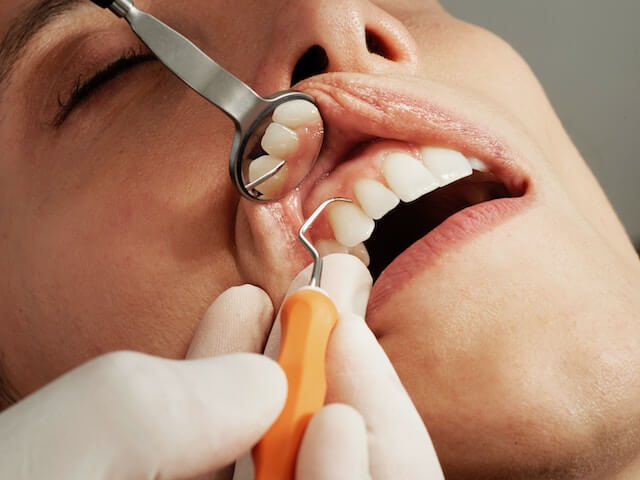Gum Disease and Atrial Fibrosis: How Poor Oral Health Can Affect Your Heart
Gum disease is a common dental problem that affects millions of people worldwide. It is a bacterial infection that causes inflammation and damage to the gums and bones that support your teeth. What many people don’t realize is that gum disease is not just a problem for your mouth – it can also have serious implications for your overall health, particularly your heart health.
In recent years, researchers have discovered a link between gum disease and atrial fibrosis, a condition in which the walls of the heart’s upper chambers become scarred and thickened, disrupting the normal electrical signals that regulate the heartbeat. This can lead to an irregular and often rapid heartbeat, a condition known as atrial fibrillation or AFib.
So, how does gum disease contribute to the development of atrial fibrosis, and what can you do to reduce your risk?
Understanding Gum Disease and Atrial Fibrosis
Gum disease occurs when bacteria in plaque build up on the teeth and gums, causing inflammation and infection. Over time, this can lead to the destruction of the gum tissue and bone that hold your teeth in place, leading to tooth loss and other complications.
When you have gum disease, the bacteria that cause the infection can enter the bloodstream and travel to other parts of the body, including the heart. Once there, they can trigger an inflammatory response that can damage the heart tissue and lead to atrial fibrosis.
Research has also found that the immune response to gum disease can contribute to the development of atrial fibrosis. When your immune system detects the presence of bacteria in your mouth, it launches an attack to fight off the infection. This response can also cause inflammation and damage to the heart tissue, leading to atrial fibrosis.
Reducing Your Risk of Gum Disease and Atrial Fibrosis
Maintaining good oral hygiene is the best way to reduce your risk of gum disease and the related complications like atrial fibrosis. This means brushing your teeth twice a day, flossing regularly, and visiting your dentist for checkups and cleanings.
In addition to good oral hygiene, there are other steps you can take to reduce your risk of gum disease and atrial fibrosis:
– Eat a healthy diet that is rich in fruits, vegetables, and whole grains, and low in sugar and processed foods.
– Quit smoking, as tobacco use is a major risk factor for gum disease and heart disease.
– Exercise regularly, as physical activity can help improve blood flow and reduce inflammation.
– Manage stress, as chronic stress can weaken the immune system and increase the risk of gum disease and heart disease.
By taking these steps, you can protect your oral and overall health, reducing your risk of complications like atrial fibrosis.
Conclusion
Gum disease and atrial fibrosis are two conditions that may not seem related, but research has shown that they are linked. If you have gum disease, it is important to seek treatment promptly to reduce your risk of complications. And if you have a history of heart disease or other risk factors for atrial fibrosis, be sure to talk to your doctor about steps you can take to protect your heart health. With good oral hygiene and a healthy lifestyle, you can reduce your risk of both gum disease and atrial fibrosis, and enjoy better overall health and wellbeing.



